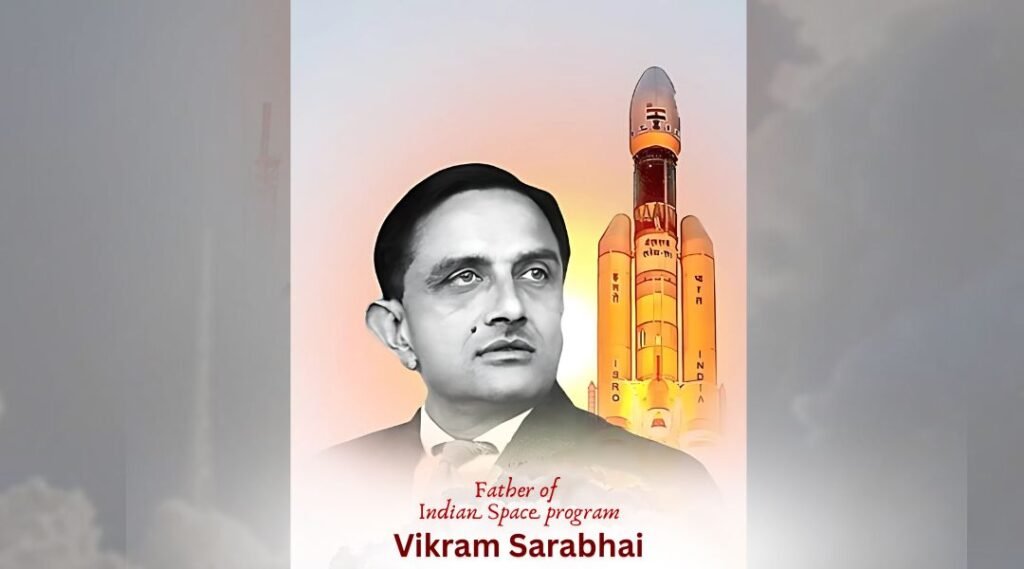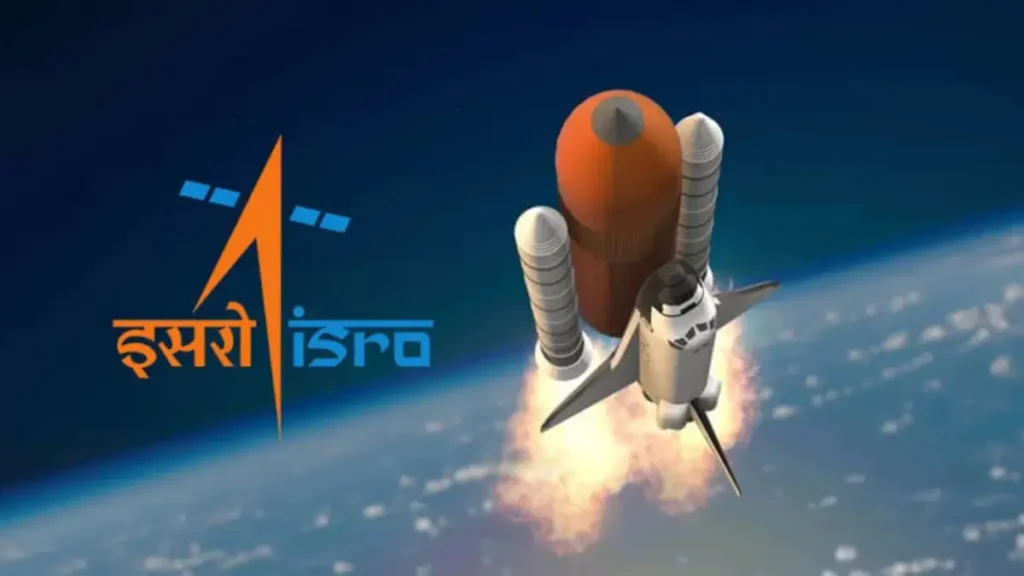Dr. Vikram Sarabhai: The Visionary Behind India’s Space Program

Dr. Vikram Sarabhai, often hailed as the Father of the Indian Space Program, was a visionary scientist, industrialist, and innovator whose contributions laid the foundation for India’s progress in science and technology. Born on August 12, 1919, in Ahmedabad, Gujarat, Dr. Sarabhai was instrumental in transforming India from a developing nation into a space-faring country.
Early Life and Education
Dr. Sarabhai came from an affluent and supportive family. He pursued his higher studies at Cambridge University, where he earned his doctorate in cosmic ray physics. His deep interest in science and the development of India inspired him to return home and work towards nation-building through scientific advancement.
Read it also: Healing Minds Through Music on World Music Day: Rishabh Sharma
Contribution to India

- Establishing ISRO: Dr. Sarabhai was the driving force behind the formation of the Indian Space Research Organisation (ISRO) in 1969. He believed that space technology could address India’s development needs in education, communication, and natural resource management.
- Satellite Development: Under his leadership, India successfully launched its first satellite, Aryabhata, in 1975 (after his death, but based on his vision). He initiated satellite communication experiments that helped reach remote villages with educational TV programs.
- Institutions and Research: Dr. Sarabhai founded several key institutions like the Physical Research Laboratory (PRL) in Ahmedabad, the Indian Institute of Management Ahmedabad (IIM-A) (along with Kasturbhai Lalbhai), and the Community Science Centre to promote scientific education and research in India.
- Promoting Nuclear Science: As chairman of the Atomic Energy Commission after Homi Bhabha’s death, Dr. Sarabhai played a crucial role in developing India’s nuclear capabilities for peaceful purposes.
Legacy

Dr. Sarabhai’s vision continues to inspire generations of Indian scientists. His belief that “we do not have the fantasy of competing with the economically advanced nations in the exploration of the moon or the planets or manned space-flight”, but rather to use space science for the betterment of the common man, still guides ISRO’s mission today.
He passed away on December 30, 1971, but his legacy lives on. In his honor, ISRO’s space research center in Thiruvananthapuram was renamed the Vikram Sarabhai Space Centre (VSSC), and India’s first lunar lander (part of Chandrayaan-2 and Chandrayaan-3) is also named Vikram.
Dr. Vikram Sarabhai was more than just a scientist — he was a nation-builder. His vision, leadership, and dedication to using science for social transformation helped India emerge as a global space power. He remains a symbol of what one individual’s dream and determination can achieve for an entire nation.
Latest Post
-
 04 Dec 2025The Role of Content Marketing in Building a Brand
04 Dec 2025The Role of Content Marketing in Building a Brand -
 20 Nov 2025Top 5 Digital Marketing Certifications That Add Value to Your Resume
20 Nov 2025Top 5 Digital Marketing Certifications That Add Value to Your Resume -
 27 Oct 2025Top 10 Social Media Mistakes Every Beginner Should Avoid
27 Oct 2025Top 10 Social Media Mistakes Every Beginner Should Avoid -
 25 Oct 2025SEO vs Google Ads – Which One is Better for Your Business?
25 Oct 2025SEO vs Google Ads – Which One is Better for Your Business? -
 24 Oct 202510 Digital Marketing Tools Every Student Should Know About
24 Oct 202510 Digital Marketing Tools Every Student Should Know About -
 22 Oct 2025Why Digital Marketing is the Hottest Career in 2025
22 Oct 2025Why Digital Marketing is the Hottest Career in 2025 -
 11 Oct 2025🌸 International Day of the Girl Child: Empower Her, Educate Her, Celebrate Her
11 Oct 2025🌸 International Day of the Girl Child: Empower Her, Educate Her, Celebrate Her -
 07 Oct 2025Digital Marketing and the Role of SEO in Driving Online Success
07 Oct 2025Digital Marketing and the Role of SEO in Driving Online Success -
 12 Aug 2025विश्व संस्कृत दिवस: ज्ञान और संस्कृति की भाषा का उत्सव
12 Aug 2025विश्व संस्कृत दिवस: ज्ञान और संस्कृति की भाषा का उत्सव -
 04 Aug 2025World Organ Donation Day 2025: Give Blood, Give Hope- Together We Save Lives!
04 Aug 2025World Organ Donation Day 2025: Give Blood, Give Hope- Together We Save Lives!











